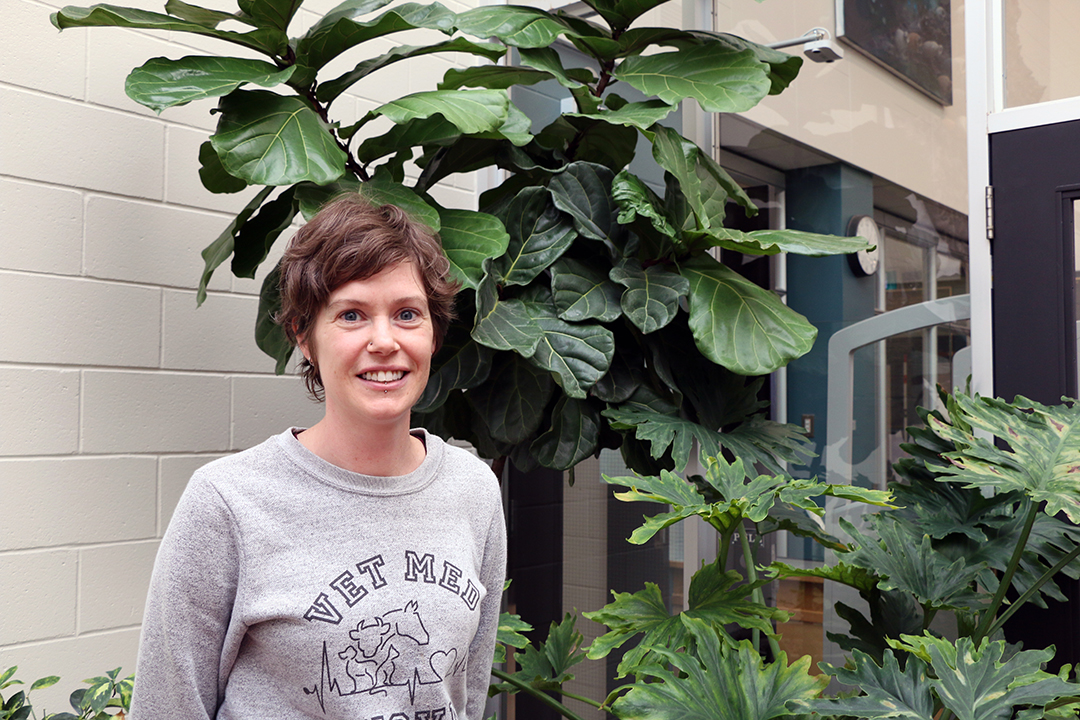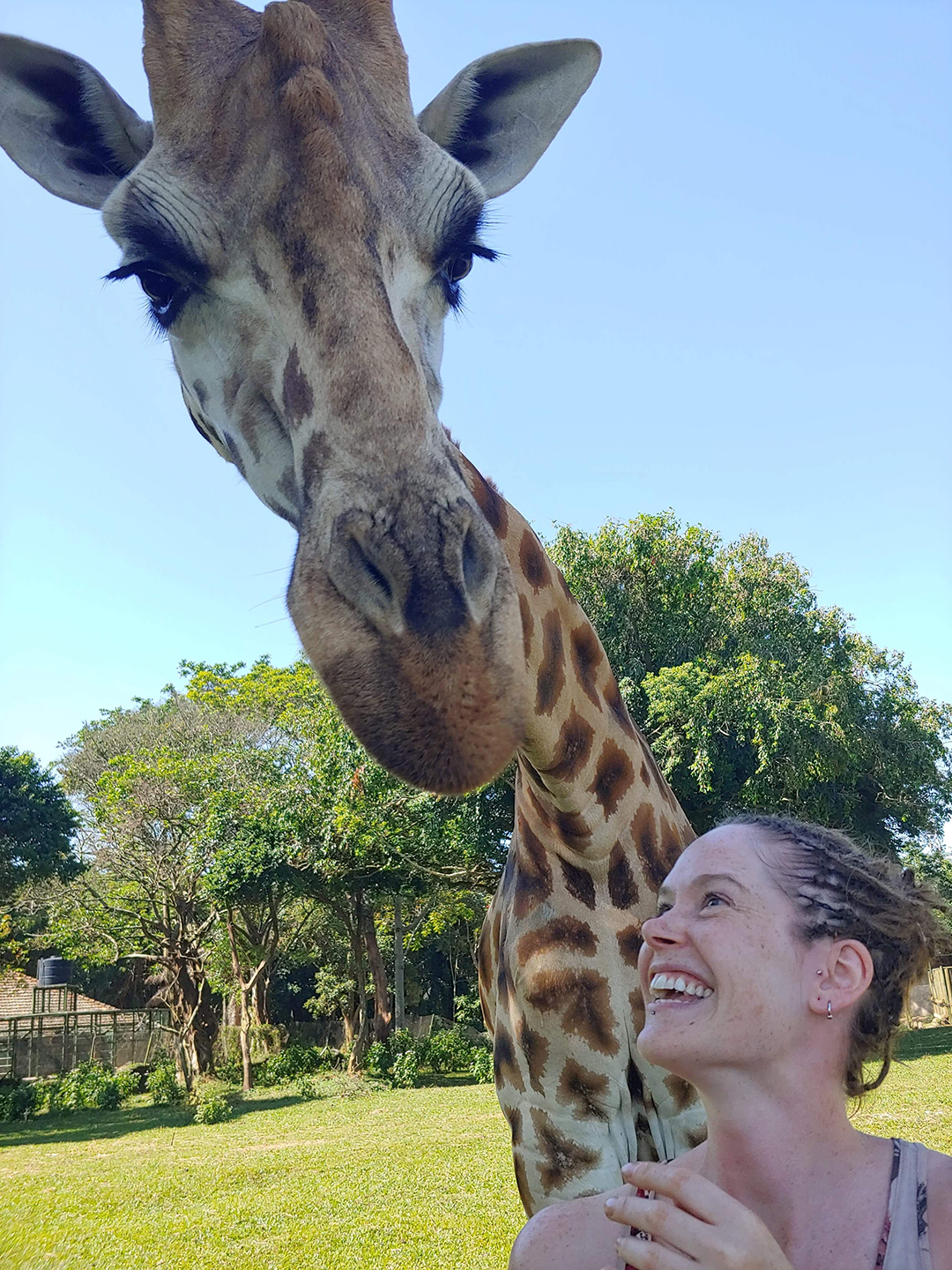
International experience gives One Health perspective
Carina Beeksma of Edmonton, Alta., has worked in the veterinary profession for nearly 10 years, but she didn’t realize she was also working in One Health until she started studying at the Western College of Veterinary Medicine (WCVM) three years ago.
By WCVM Today
She credits her participation in the Veterinarians Without Borders/Vétérinaires sans frontières program for opening her eyes to the idea of bringing together different disciplines to solve complex problems.
What does One Health mean to you?
The definition of One Health is bringing together animals, the environment and people, but it’s also bringing together the different medical disciplines, working together in order to help better the world.
How did you become interested in One Health?
I’ve been working as a registered veterinary technician for about 10 years now. During this time I volunteered at the wildlife rehabilitation centre (Wildlife Rehabilitation Society of Edmonton) and did work there for a couple of years. I’ve always been interested in wildlife — looking at nature and ecosystems and bringing it all together, and the influences humans can have.
When did you realize you were working in One Health?
It wasn’t until coming to vet school that we really talked about it. In first year we attended the One Health Leadership Experience conference and the (USask) IPASS conference. Working with the other disciplines at the conferences allowed me to branch out and work through various scenarios looking at it through other people’s eyes.
What opportunities are there on campus to get involved with One Health?
I went to Uganda through Vets Without Borders (VWB). There’s also a program — the Queen Elizabeth Scholarship — where it’s open to multiple disciplines. There were girls there from kinesiology, nutrition, nurses, as well as vet students. You get to work together, and work in Uganda and work with the people there going into remote villages, but also working in the hospital in Mbarara, which is the second largest city in Uganda.
My work with VWB was focused on working with the Foundation for AIDS Orphaned Children, and with them, we were helping to promote drinking milk in schools. A lot of these children eat one meal a day at night when they get home. We’ve all been taught that eating breakfast is the most important part of the day, because it helps your brain to learn while you’re in school. These children just aren’t getting that.
The other big part of the VWB experience was vaccinating and testing goats for brucellosis as well as working with Dr. Claire Card (WCVM professor) and her goat pass-on project, which helps to get goats to women in the various communities who then breed them and pass on the goat kids to other women in the communities.
How will One Health influence your future career as a vet?
Even when you’re working with cats and dogs, there’s a lot you have to know … whether it’s exporting or importing cats and dogs, knowing about various diseases, and whether or not they’re zoonotic (transmitted between animals and people). It’s very important in your everyday life.
Clients are always going to ask, “If my dog has worms, can I catch that?” It’s important to know which ones they can and which ones they can’t.
What would you recommend students do if they are interested in One Health?
For me, working with VWB was definitely a huge eye opener and definitely a huge step for me working with One Health. There are also multiple conferences and lots of things you can do without leaving Canada if that’s not really what you’re into.
As a student, you get to try so many new things, and you just get to meet so many new people and really figure out what it is what you want to do once you graduate. Now is the perfect time to try it because you have all these doors open to you.
One Health Day: Carina Beeksma from WCVMToday on Vimeo.
